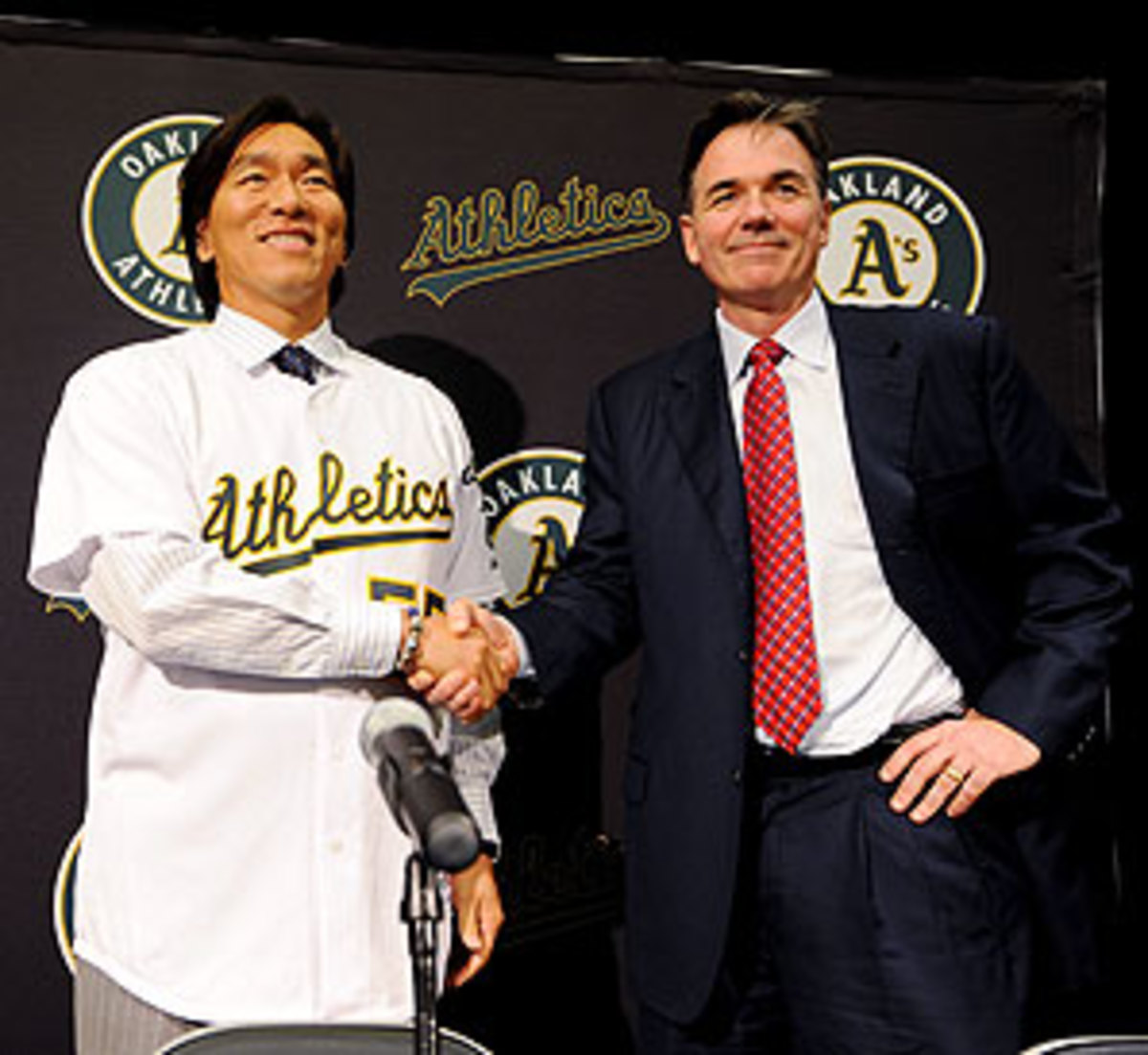Beane's latest rebuilding effort makes A's trendy sleeper pick
SCOTTSDALE, Ariz. -- The movie Moneyball is scheduled for release next September, when ticket-buyers can see Brad Pitt portray Oakland A's general manager Billy Beane and his 2002 team shock the baseball world by overcoming a severely limited budget to reach the playoffs for the third straight year.
By the time it hits theaters, Beane hopes to have the 2011 version of his team causing similar shockwaves and contending for the AL West title with a decidedly non-Moneyball unit.
"Listen, my first choice is to have a bunch of guys who get on base, hit .400 and hit a bunch of home runs," Beane said. "But those guys are very expensive now. We're left with what's available. This is different -- no question."
Since the A's were last in the playoffs, in the ALCS in 2006, Oakland has been a baseball outpost, in part intentionally. Beane tore his team down to the bones and rebuilt it, focusing on pitching and backfilling the roster with affordable position players who can play defense, run the bases and manufacture runs.
With some capital freed up this offseason -- a rarity for the A's -- Beane went to work. He pursued Adrian Beltre and Lance Berkman. While they signed elsewhere, Beane landed David DeJesus, Josh Willingham and Hideki Matsui.
"We were very methodical," Beane said. "We had Plan A and Plan B but, for us, we usually have to go to Plan P because New York or Boston has the same idea."
When Beane stockpiled his already rich bullpen in January, signing Brian Fuentes and Grant Balfour, it was less Moneyball philosophy than an NFL draft mindset: best available player.
"I'd like to claim some market inefficiency, but they were the guys who were there," Beane said. "We had some money left and the bullpen guys available were a better value than the bats that were there."
The centerpiece of his team is the young pitching staff. The A's 20-something starting rotation -- anchored by Trevor Cahill, Brett Anderson, Dallas Braden and Gio Gonzalez -- led the American League last year with an ERA of 3.58. With both the Rangers and the Angels potentially vulnerable, the A's have become a trendy pick to win the AL West.
"The players know that we're improved," manager Bob Geren said. "On paper, we should be better."
But, on the field, the pressure is now on Geren. That's one Moneyball philosophy Beane hasn't abandoned: He's not interested in having a dynamic, big-name manager. Geren, famously tied to Beane for having been his best man in his wedding, hasn't distinguished himself in his four seasons as A's manager. Last year's second place, .500 finish was the team's best under Geren
"He hasn't had great teams," Beane said in Geren's defense. "He inherited this club when it was going the other way."
But now the A's are trending upward, expected to win. That means that the public will truly find out what kind of manager Geren is. The pressure is on.
And the pressure is on the A's to regain relevancy. They've been an afterthought not only in baseball, but in their own market, second-from-the-bottom in the league attendance, making far more news by clamoring to get out of Oakland than by playing baseball. The A's second-tier status has only been exacerbated by the Giants winning the World Series last fall.
Now would be perfect time to challenge the status quo by winning.
The A's and Giants are unfriendly neighbors, bickering at the backyard fence over territorial rights. But on at least one count, the A's admire what the Giants managed to do last year: win it all with great young pitching and a roster filled with decent players but no slugging superstars. A lot like the team the A's are projected to be this year.
"I don't think it's unfair to make the parallel there," Beane said.
It might not be traditional Moneyball. But if the A's are in the race when the movie comes out, Beane's latest adaptation should be a box-office hit.






